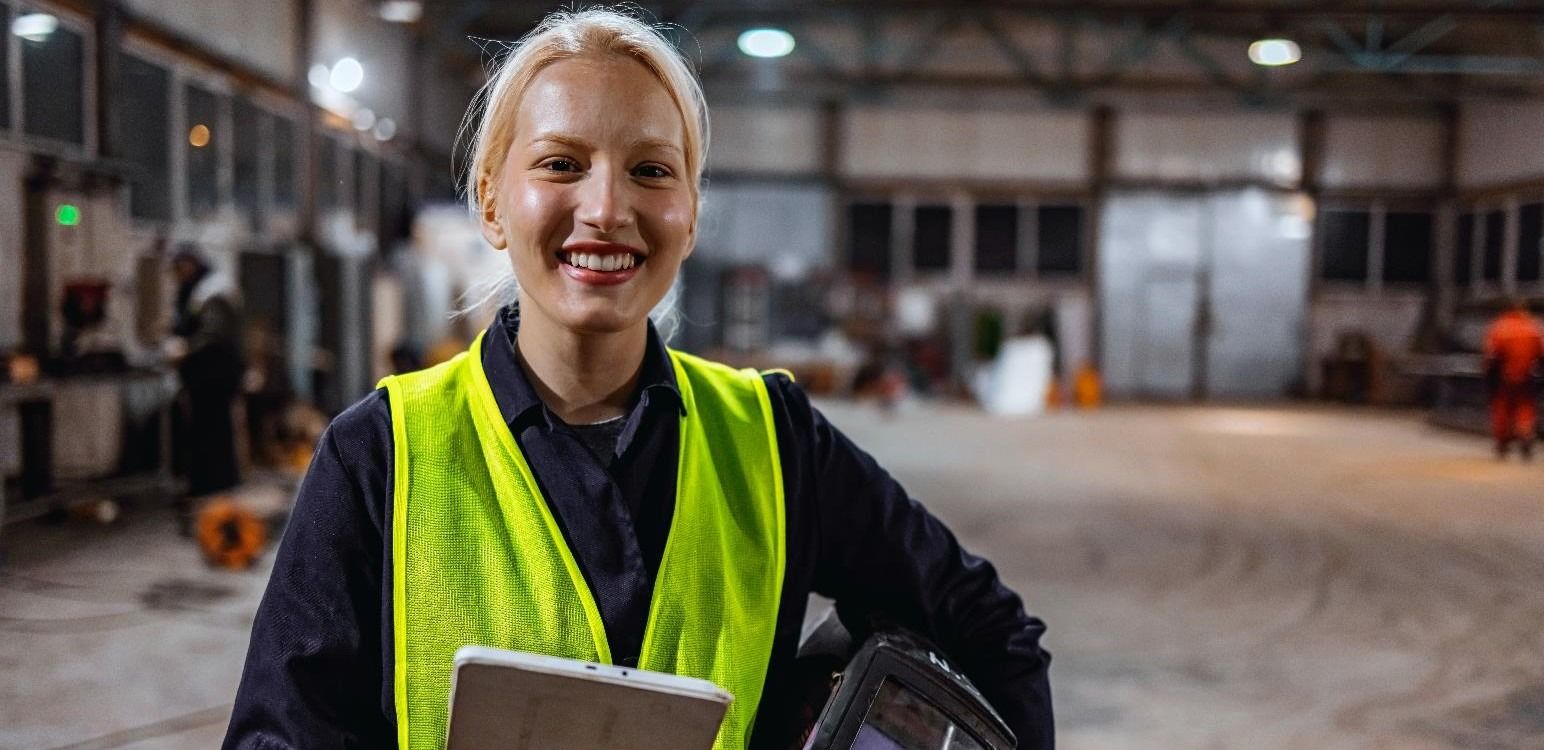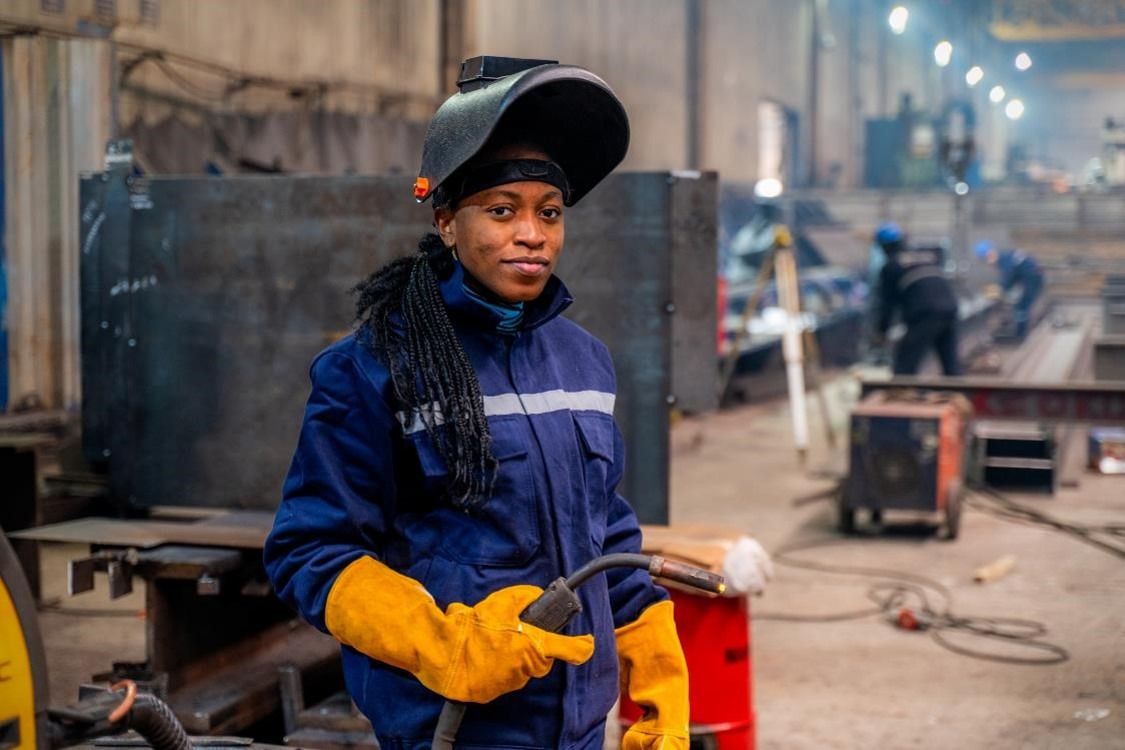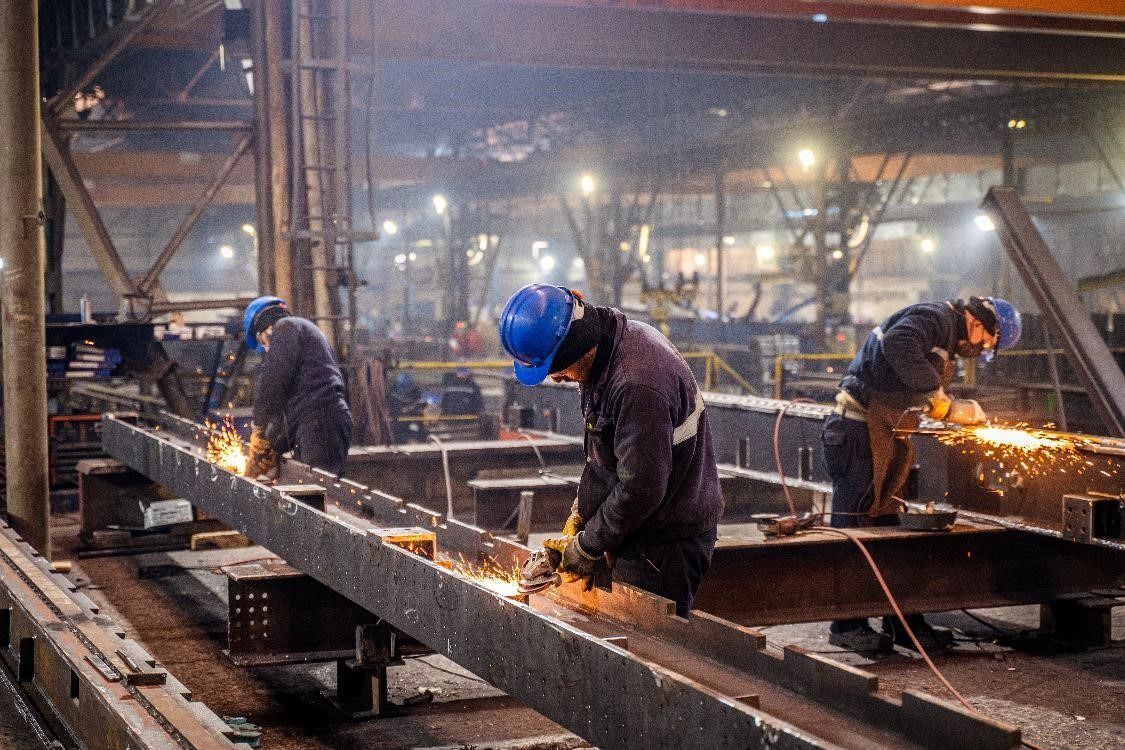Welder CV Template
Learn how to structure and write a CV for Welder positions, including what skills and experience to emphasise to employers.

If you’re writing a Welder CV, then there are a few things you need to do to make your CV stand out above other candidates. First, start with:
1. Start with a strong personal statement
2. Follow with your work experience, listing previous roles in reverse chronological order.
3. Include a section for key skills and qualifications relevant to a welder role.
4. You can also include additional information such as hobbies or references, but they’re not as important.
If you need any additional guidance on how to write a CV, you can also look at our writing tips for general help.
How to Write a Personal Statement for a Welder
To write a personal statement for a Welder, you’ll need to briefly mention your skills and experience, and how these will benefit the role. Your statement should be no longer than 150 words in length, and it should only contain important information required for the job.
Welder Personal Statement Example
“As an apprentice Welder, I have learned the most practical and efficient ways to use welding tools and equipment. I have a good understanding of different welding techniques, which I have practised during my course to make sure I can use the correct tools with the necessary materials.
I have built up strength and stamina during my training to cope with the physically demanding work, and I have a keen eye for detail to make sure that there are no errors in my work.
I understand welding safety procedures, and I always wear the correct protective clothing for the job to keep myself and those around me safe. I am interested in learning more about this profession, and I think your company is the best place for me to hone my skills even further.”

Ideal Work Experience for a Welder
A Welder may be expected to have prior experience in Welding, depending on the skill level required for the role. Make sure you have the necessary work experience before applying for the role.
Which Jobs to Include
Ideally, a Welder will need previous work experience to have the necessary skills for the job. This can come from apprenticeships, where you will learn all the skills you need and have an opportunity to improve them as you learn. Work experience placements and shadowing can also give valuable insight into this profession. Manual labour roles can also be useful for developing practical skills.
Welder CV Work Experience Example
Use bullet points to separate your work experience and the skills you’ve gained from each job:
-
Apprentice Welder at [company name] from [start date] to [end date]
-
During my apprenticeship, I learned how to properly use welding tools for different materials. I became adept at equipment maintenance to make sure there were no issues before I used any of my equipment.
-
I learned how to understand and read blueprints and interpret technical drawings, which helped me to understand the project’s requirements and what I would need for different jobs.
-
I can confidently work independently, and my mentors trusted me to work efficiently by myself to complete projects.
Key Skills & Qualifications for a Welder CV
Depending on the position you’re applying for, employers will expect a certain level of skill and experience. Entry-level positions or apprenticeships will ask for less, whereas senior positions will expect more experience from candidates.
Important Skills for a Welder
Employers will write the required skills they want a candidate to have on the job description, but generally, you will need technical, physical and personal skills.
Basic Mathematics skills will be needed for calculations, you will need knowledge of materials to understand the properties of different metals and alloys, and you will need to be familiar with welding equipment.
Manual dexterity, hand-eye coordination and stamina are also essential, as well as problem-solving skills, the ability to work independently, and a willingness to learn.
Qualifications Needed to Be a Welder
Formal qualifications needed to be a Welder include GCSEs in at least Maths and English, Level 2 in Welding Skills, or a Level 3 Diploma in Fabrication and Welding Engineering Technology.
You may not need all these qualifications; it will depend on the job you’re applying for, and a job application will specify which qualifications a candidate will need.
Additional Content to Boost Your Welder CV
It can also boost your CV to mention your hobbies or interests, as long as they have helped you develop valuable skills. You might also want to add one or two references to your CV, so that an employer can speak with your previous employer about your performance.
Hobbies & Interests
It can be beneficial to add hobbies or interests to your CV, but only if they have helped you develop soft skills. This can be communication skills from taking part in group hobbies, or problem-solving skills from an interest in fixing cars, or other items. There are a lot of skills that can be gained from hobbies, just make sure that they’re relevant to the role before you talk about them.
References
If you’re including references, make sure that they are people who worked with you during your previous job roles, and that they can talk about your abilities. This could be a manager, a line manager, or a mentor who spent time teaching you the trade.
You should always have someone’s permission before you use them as a reference, and you should make sure their information is correct before adding them to your CV.
How to Make a Welder CV Stand Out
The best way to make your CV stand out is by mentioning instances where you had to use your skills to solve issues others couldn’t, or where you had to think outside of the box. Using your skills to their fullest potential shows an employer that you understand your job and how to perform optimally.
Making your CV easy to read will help it stand out. Using headings for different sections and bullet points to draw attention to important skills will help an employer find information quickly, instead of having to read through blocks of text that may not be relevant to the job.
Mistakes to Avoid
Avoid using overly casual language when writing your CV. Though it doesn’t have to be formal, using jargon won’t boost your CV. Make sure you understand the terms that you’re using.
Avoid writing too much and overwhelming your CV with text. Stay concise and brief to make everything easier to read.

Welder CV Example
Now that you’ve seen our guide and writing tips, you should feel confident in your ability to write your CV, but if you’re still not sure how the layout should look, you can use our template to help. This free CV template will give you a better understanding of how to write a standout CV.

